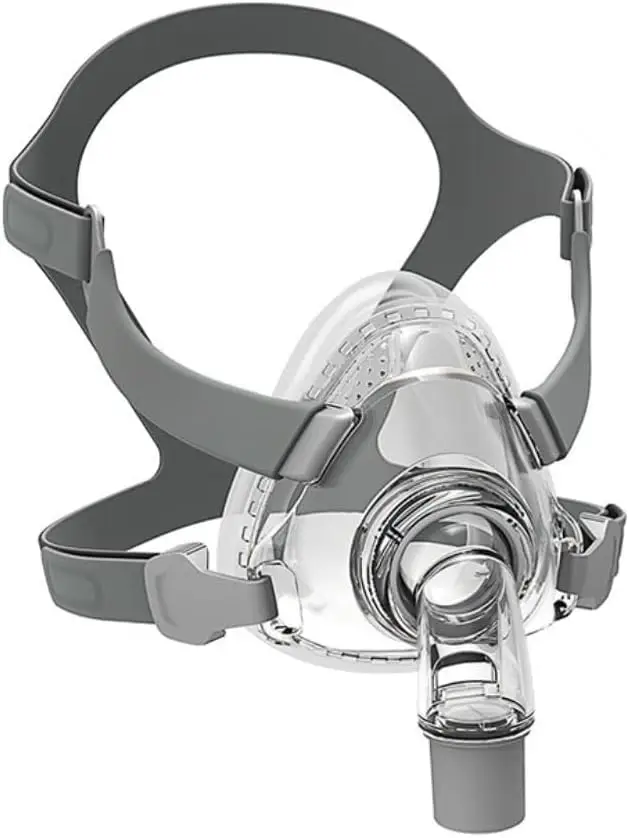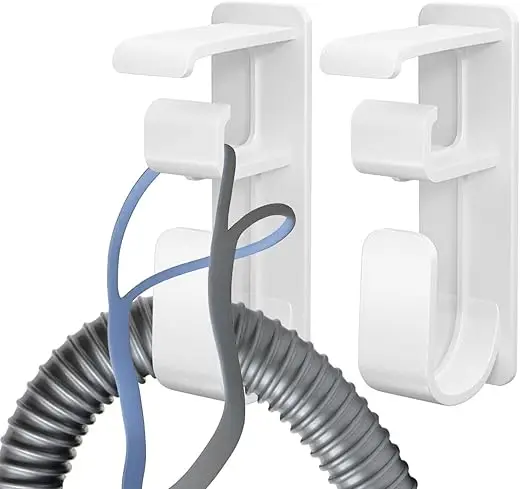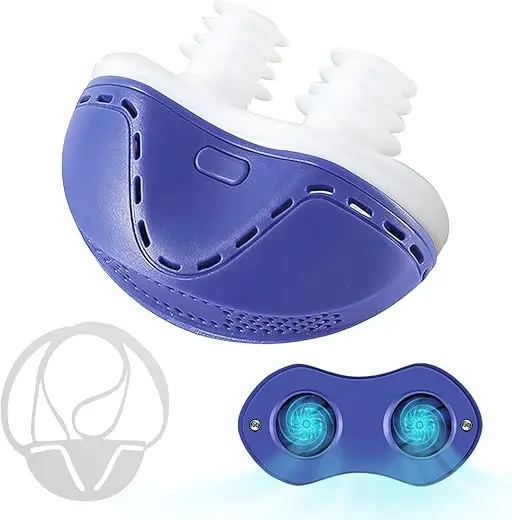Understanding Sleep Apnea
Sleep apnea is a serious sleep disorder characterized by repeated interruptions in breathing during sleep. These interruptions can last for seconds to minutes and may occur dozens or even hundreds of times a night. This condition often goes undiagnosed and untreated, leading to significant health complications. Understanding sleep apnea is crucial for improving sleep quality and overall health.
Definition of Sleep Apnea
At its core, sleep apnea involves pauses in breathing that disrupt sleep. These pauses can lead to fragmented sleep patterns and a decrease in sleep quality, which is essential for physical and mental well-being. The disorder is categorized into three main types: obstructive, central, and complex sleep apnea syndrome.
Types of Sleep Apnea
The most common form is obstructive sleep apnea (OSA), where the throat muscles relax excessively during sleep, blocking the airway. Central sleep apnea (CSA) occurs when the brain fails to send signals to the muscles that control breathing. Finally, complex sleep apnea syndrome is a combination of both OSA and CSA. Understanding these distinctions is vital for appropriate diagnosis and treatment.
Causes of Sleep Apnea
Identifying the causes of sleep apnea is key to managing the condition effectively. Various factors can contribute to the development of this disorder, and recognizing them can aid in early intervention.
Obstructive Sleep Apnea
Obstructive sleep apnea is primarily caused by an obstruction of the upper airway. This could be due to factors such as excess weight, anatomical features like a thick neck or enlarged tonsils, and the aging process. Individuals with a family history of sleep apnea or those who consume alcohol, sedatives, or tobacco are at greater risk.
Central Sleep Apnea
Central sleep apnea, although less common, can be triggered by conditions that affect the brain’s ability to regulate breathing. This includes neurological disorders, heart failure, and certain medications. Understanding these underlying causes can help in tailoring treatment approaches.
Complex Sleep Apnea Syndrome
Complex sleep apnea syndrome combines aspects of both obstructive and central sleep apnea. It often occurs in patients who initially present with OSA but develop CSA during treatment. Identifying this condition requires careful monitoring and adjustment of treatment strategies.
Sleep Apnea Symptoms to Watch For
Recognizing the symptoms of sleep apnea is crucial for early diagnosis and intervention. Symptoms can vary greatly among individuals, but some common signs indicate potential issues.
Common Symptoms
Common symptoms of sleep apnea include loud snoring, gasping for air while asleep, daytime sleepiness, and difficulty concentrating. Other signs may include mood changes and headaches after waking. Notably, many individuals may be unaware that they have sleep apnea, as the symptoms often occur while they are asleep.
How Symptoms Affect Sleep Quality
The frequent interruptions in breathing can significantly affect sleep quality, leading to fragmented sleep cycles. This disruption can result in insufficient restorative sleep, leading to fatigue, irritability, and impaired cognitive function during the day. The impact of these symptoms can be profound, affecting personal relationships and job performance.
Treatment Options Available
Effective treatment options are available for sleep apnea, varying from lifestyle changes to medical devices and surgical interventions. The appropriate choice largely depends on the severity of the condition and the individual patient’s needs.
Continuous Positive Airway Pressure (CPAP)
One of the most common treatments for obstructive sleep apnea is Continuous Positive Airway Pressure (CPAP) therapy. This device delivers a steady stream of air through a mask, keeping the airway open during sleep. While it may take time for users to adjust, CPAP is highly effective for most patients and is often the first line of treatment.
Oral Appliances
Oral appliances are another option, especially for patients with mild to moderate sleep apnea. These custom-made devices help keep the airway open by repositioning the jaw and tongue. They are portable and generally easier to use for those who find CPAP unwieldy.
Surgery
In cases where other treatments fail, surgery may be considered. Surgical options typically aim to remove tissue or correct anatomical issues contributing to airway obstruction. This might include procedures on the uvula, tonsils, or jaw. Surgical interventions are usually considered after comprehensive evaluation and in cases where non-invasive treatments are ineffective.
Risks of Untreated Sleep Apnea
Failing to treat sleep apnea can lead to serious complications, impacting various aspects of health. The risks extend beyond just disrupted sleep and can have significant long-term consequences.
Cardiovascular Issues
Untreated sleep apnea can lead to cardiovascular problems such as high blood pressure, heart attack, and stroke. The repeated episodes of low oxygen levels during sleep increase strain on the heart and can lead to heart rhythm disturbances. Consequently, individuals with sleep apnea have a higher risk of developing chronic heart conditions.
Increased Risk of Accidents
Daytime sleepiness due to poor sleep quality can significantly increase the risk of accidents, particularly workplace injuries and motor vehicle accidents. The cognitive impairment associated with untreated sleep apnea can diminish reaction times and impair judgment, contributing to dangerous situations.
Sleep Apnea and Mental Health
The relationship between sleep apnea and mental health is complex and multifaceted. Research indicates that sleep apnea can exacerbate pre-existing mental health conditions while also leading to new issues.
Link Between Sleep Apnea and Depression
Many individuals with sleep apnea report experiencing symptoms of depression and anxiety. The chronic fatigue and disruption to healthy sleep patterns can trigger or intensify mental health issues. Furthermore, the social stigma associated with snoring and disruptive sleep can lead to feelings of isolation and low self-esteem.
Effects on Cognitive Function
Sleep apnea can impair cognitive functions such as memory, concentration, and decision-making. The lack of restorative sleep affects critical brain functions, leading to difficulties in learning and performance at work or school. Addressing sleep apnea can thus be beneficial not only for physical health but also for cognitive well-being.
Importance of Sleep Hygiene
Practicing good sleep hygiene is essential for improving sleep quality and managing sleep apnea effectively. This involves creating an environment and routine conducive to restful sleep.
Creating a Sleep-Conducive Environment
To promote better sleep, individuals should create an environment that minimizes disturbances. This includes keeping the bedroom cool, dark, and quiet, and using comfortable bedding. Reducing exposure to electronic screens before bed can also significantly improve sleep quality.
Establishing a Sleep Routine
Maintaining a consistent sleep schedule is another key aspect of good sleep hygiene. Going to bed and waking up at the same time each day helps regulate the body’s internal clock, making it easier to fall asleep and wake up refreshed. Incorporating relaxation techniques, such as reading or meditation, can also enhance the pre-sleep routine.
Devices for Managing Sleep Apnea
In addition to CPAP therapy, various devices are designed specifically for managing sleep apnea. These range from portable options to advanced technologies.
Types of CPAP Devices
CPAP devices come in various styles, including standard, auto-adjusting, and bi-level positive airway pressure (BiPAP) machines. Auto-adjusting devices adapt the pressure level throughout the night based on the patient’s needs, providing greater comfort. BiPAP machines offer two different pressure settings for inhalation and exhalation, catering to those who struggle with regular CPAP machines.
Innovative Treatment Technologies
Innovations in sleep apnea treatment include adaptive servo-ventilation (ASV) and newer oral appliances that incorporate technology to monitor sleep patterns and adjust accordingly. These advanced solutions aim to enhance user comfort and improve treatment efficacy over time, making them appealing options for patients seeking alternatives to traditional methods.
Role of Lifestyle Changes
In conjunction with medical treatments, lifestyle modifications play a significant role in managing sleep apnea. These changes can improve symptoms and overall health.
Weight Management
Weight management is particularly critical for individuals with obstructive sleep apnea, as excess weight can contribute to airway obstruction. Losing even a small percentage of body weight can substantially reduce the severity of sleep apnea and improve respiratory function during sleep. A balanced diet and regular physical activity are essential components of effective weight management.
Exercise and Diet
Regular exercise not only aids in weight management but also helps improve sleep quality. Engaging in moderate physical activity can enhance overall cardiovascular health, further reducing the risks associated with sleep apnea. Additionally, a nutritious diet that includes plenty of fruits, vegetables, and whole grains can contribute to better sleep patterns and overall health.
Impact on Daily Life and Seeking Professional Help
Sleep apnea can significantly impact daily life, affecting work performance, relationships, and overall well-being. Understanding these effects can help motivate individuals to seek appropriate care.
Understanding the Daytime Effects
The consequences of untreated sleep apnea extend into waking hours, manifesting as persistent daytime sleepiness, irritability, and difficulty concentrating. These symptoms can hinder productivity and increase the risk of accidents. Recognizing these impacts is crucial for understanding the importance of diagnosis and treatment.
When to Consult a Healthcare Professional
Individuals experiencing symptoms of sleep apnea should consult a healthcare professional for evaluation. Timely diagnosis can lead to effective treatment and significant improvements in quality of life. If you suspect you or a loved one may have sleep apnea, it’s essential to discuss these concerns with a healthcare provider to explore appropriate testing and treatment options.
FAQs about Sleep Apnea
1. What are the main symptoms of sleep apnea?
The main symptoms include loud snoring, gasping for air during sleep, daytime sleepiness, irritability, and difficulty concentrating.
2. How is sleep apnea diagnosed?
Sleep apnea is typically diagnosed through a sleep study (polysomnography) conducted in a sleep lab or at home using specialized equipment.
3. Can sleep apnea be cured?
While there is no definitive cure for sleep apnea, it can be effectively managed with lifestyle changes, CPAP therapy, and other treatments.
4. What lifestyle changes can help manage sleep apnea?
Weight management, regular exercise, and maintaining a consistent sleep schedule can significantly help manage sleep apnea symptoms.
5. Is sleep apnea a serious condition?
Yes, untreated sleep apnea can lead to serious health issues, including cardiovascular problems and impaired cognitive function.
Summary of Main Points
Sleep apnea is a serious condition that requires careful attention and management. Understanding the different types, causes, and symptoms is essential for early diagnosis and intervention. Treatment options such as CPAP therapy, oral appliances, and lifestyle changes can greatly improve outcomes. Additionally, recognizing the risks associated with untreated sleep apnea highlights the importance of seeking professional help for proper management. By prioritizing sleep hygiene and making necessary lifestyle adjustments, individuals can significantly enhance their quality of life and overall health.



